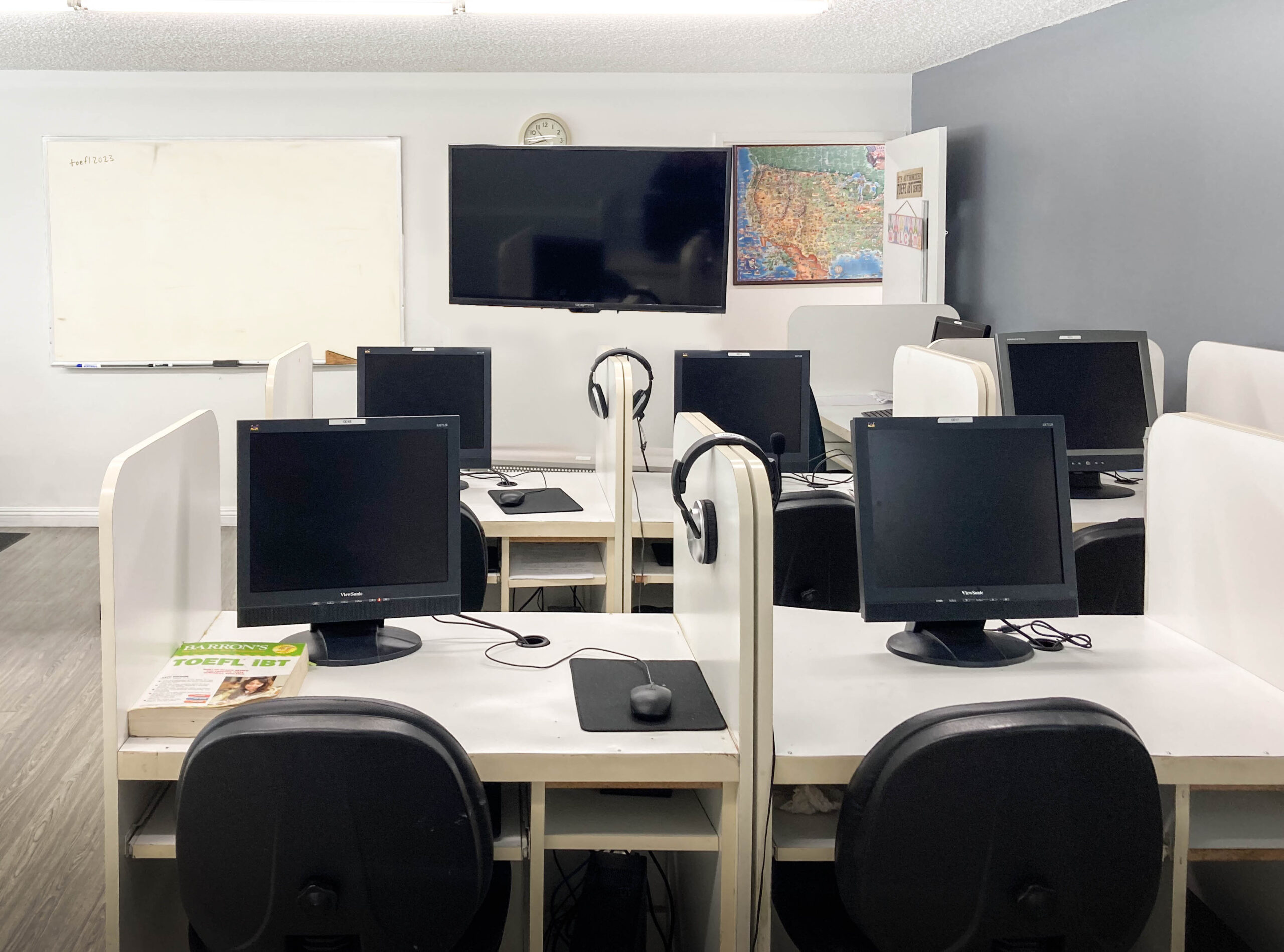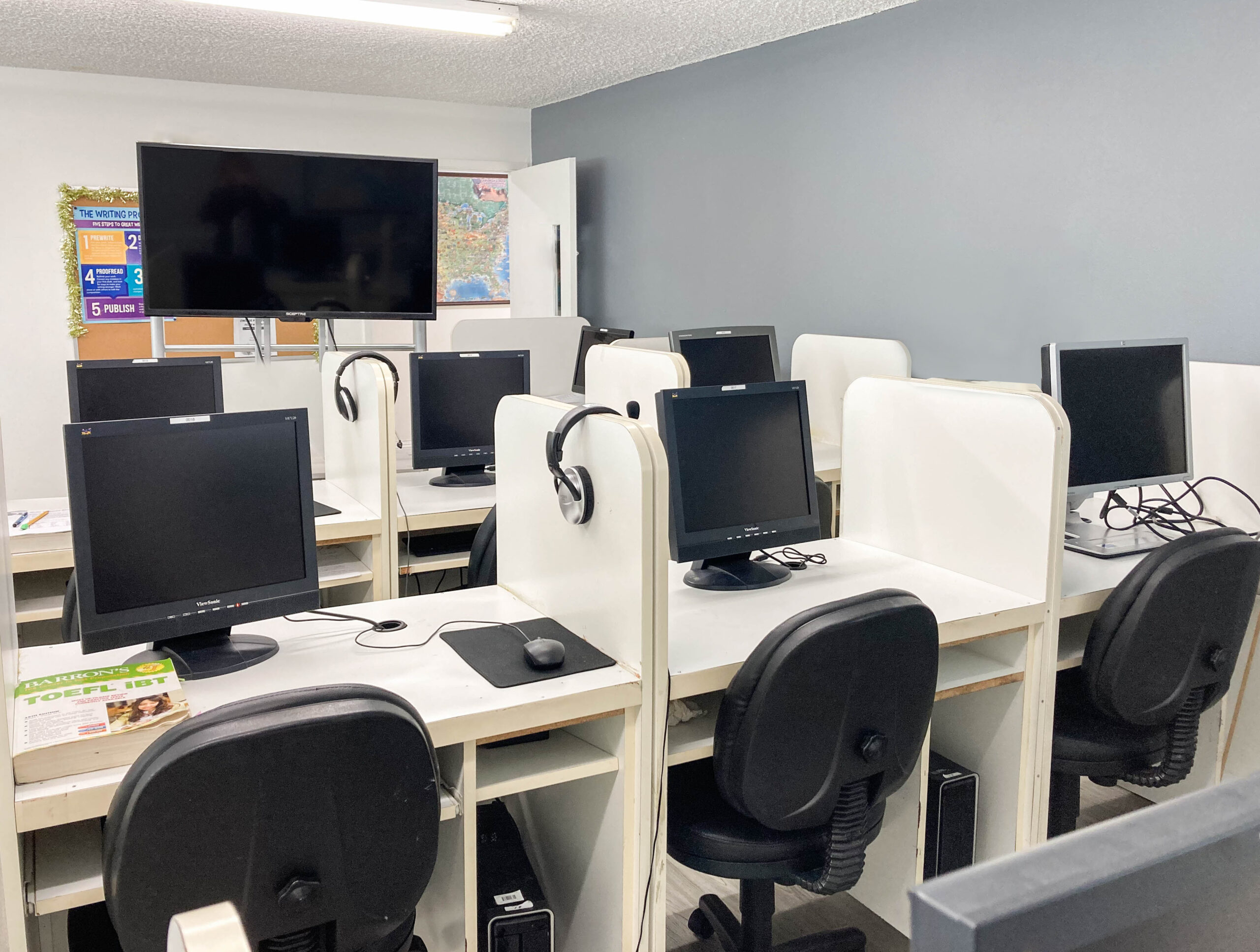Students who wish to join the TOEFL® program must be at a High-advanced proficiency level. Our TOEFL® program will teach the students the strategies for passing the test with the desired score. Students will learn how to write integrated and independent essays, listen to lectures and take notes, speak on various topics in timed exercises, analyze articles and understand vocabulary from context. This will prepare them for getting the optimal score they are seeking.
Our TOEFL® program focuses on topics from the fields of study included in the actual TOEFL® test. Students take weekly TOEFL® tests on the computer and learn test-taking strategies and skills. Our TOEFL® class is held in the computer lab. Each student is assigned to a computer station to work at and take the weekly practice tests.


TOEFL® Preparation Program
The TOEFL® Test Preparation Program is designed for students who plan to take the TOEFL® exam. The TOEFL® exam is a test used for College, University, and Graduate school admission. This course is for students who wish to improve their scores on the TOEFL® test. Participants follow an assigned schedule and learn TOEFL® skills through studying lectures, doing exercises, taking practice TOEFL® tests, and receiving instructor feedback.
Course Learning Outcomes
The objectives of this course are to improve students’ aural, writing, speaking, and reading skills and to improve their test scores on the TOEFL®. Each week students will monitor their progress by taking a practice test. After the practice test, class time is used to teach and practice academic skills. Students will think, answer, compare, and discuss each question to further their academic knowledge.
Students will have to demonstrate their ability to integrate the language skills by completing tasks similar to those that they will be expected to accomplish in academic settings. They will have to speak and write at high levels of proficiency. Therefore, this class focuses on academic English in all modalities – reading, writing, listening, and speaking. Four main areas of academia are studied: the Natural Sciences, Applied Sciences, Social Sciences, and Humanities.
Upon successful completion of this course, students should have a good understanding of all skills (listening, reading, writing, and speaking). They will demonstrate their abilities by successfully completing the TOEFL® exam with a high score. In this way, the students are thoroughly prepared to gain admission to universities and to derive the maximum benefit from their studies while they are there.
Performance Objectives
After the successful completion of this course, students will be able to:
- Improve one’s score on the TOEFL® Test by being familiar with directions and test strategies, such as types of questions, “distractors”, and “tricks” that are used on the TOEFL® test;
- Develop awareness of individual strong and weak points so one can change ineffective strategies and allocate study time better;
- Demonstrate sound knowledge of English grammar for the TOEFL exam through reading, writing, speaking, and listening;
- Demonstrate acquisition of a broad range of relevant English language vocabulary for the TOEFL® exam;
- Demonstrate understanding of a range of accents and speed of speaking while doing a variety of tasks such as form filling, listening for main ideas, and note-taking;
- Demonstrate increased confidence and fluency through guided work, discussions, role-plays, and group or individual presentations;
- Produce individual sounds as well as elements of connected speech;
- Demonstrate effective reading comprehension skills through skimming, scanning, and predicting, along with strategies for dealing with unfamiliar vocabulary;
- Demonstrate effective academic writing skills by writing for a number of purposes; a balance of personal and impersonal styles and topics will be studied;
- Demonstrate knowledge of the process approach to writing, from the construction of sentences through compositions;
- Transfer information in note form to properly written essays;
- Demonstrate understanding of essay conventions, such as layout, bibliographies, footnotes & quotations;
- Acquire and use time-management & effective study skills;
- Discuss and debates issues of culture by expressing knowledge of other cultures, including the American culture; and
- Demonstrate learner independence by completing assigned homework and self-study.